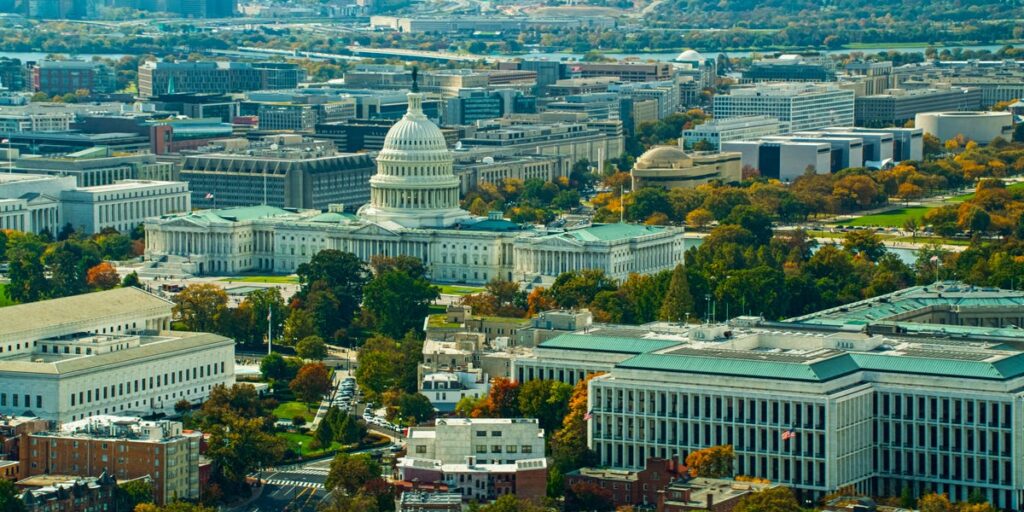- Economists say Trump’s buyout offer alone isn’t enough to impact the national job market.
- When you factor in the total cuts to federal spending, a larger negative effect is possible.
- Around 65,000 federal workers have reportedly accepted the buyout offer to leave their jobs.
The Trump administration’s buyout offer to federal employees likely won’t affect enough workers to have a immediate impact on the national job market, economists say.
More than 65,000 federal employees accepted the deferred-resignation offer, according to the White House, which promises full pay and benefits through September to workers who stop working now.
But 65,000 people entering the labor market is actually “a quite small number,” said Harry Holzer, a nonresident senior fellow in Economic Studies at Brookings Institute and a public policy professor at Georgetown.
The U.S. economy adds about 200,000 jobs each month on average, Holzer said.
Stan Veuger, a senior fellow in economic policy studies at the American Enterprise Institute, noted that many of the people accepting the buyout offer are probably close to retirement.
“I don’t think you can compare that 60,000 number to an actual 60,000 person layoff because so many people would’ve retired anyway,” he told BI.
And if they’re not retiring, many taking the buyout will find employment elsewhere. “Those who take such a deal are the ones who most want to leave the labor force or who are most likely to find other jobs,” Orley Ashenfelter, an economics professor emeritus at Princeton, said.
The impact will be felt more, Holzer said, if hundreds of thousands of federal workers enter the workforce. He also said the scale of the impacted jobs could grow with Trump administration cutting federal spending across the board, leading to federal contractors losing work and organizations losing their federal funding.
“With that number, much more quickly, you can get into scenarios where you feel it at the national labor market, and perhaps even a little more so in the DC region,” Holzer said.
The federal government dominates DC-area employment both directly and through contractor jobs. Because of that, the area is likely to see “a large negative impact if the resignations actually happen,” said John Abowd, an economics professor emeritus at Cornell.
Beyond the impact on the labor market, Abowd noted that the loss of federal workers could disrupt the function of the government.
“Chaos is the short-term consequence,” Abowd told BI. “In the longer term, there is likely to be a severe deterioration in the quality of government services, especially in activities where government services are taken for granted: food and drug safety, transportation services, medical research, defense research and development.”
Following a lawsuit filed last week, a federal judge extended the initial deadline for employees to accept the buyout offer from Thursday last week to Monday, when US District Judge George O’Toole in Boston will hear arguments from federal labor unions who say the offer is illegal.
Read the full article here


